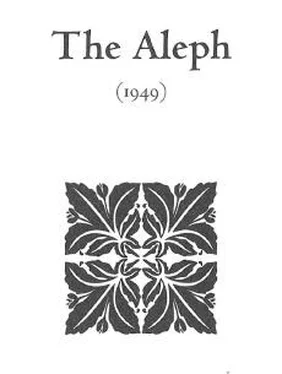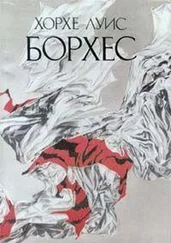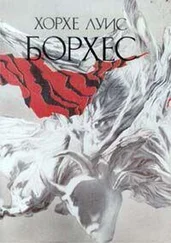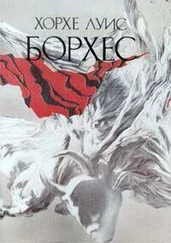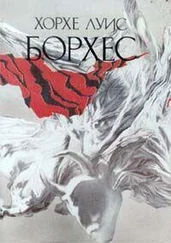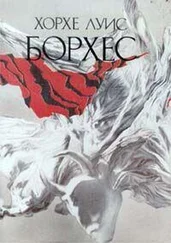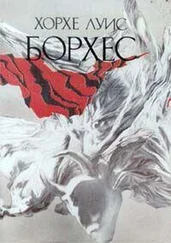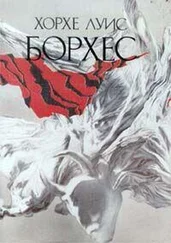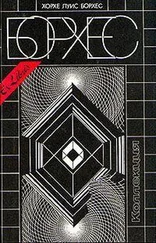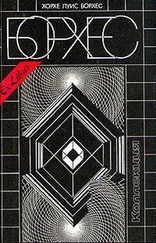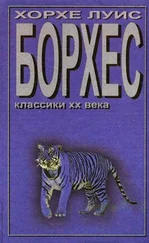Хорхе Борхес - Collected Fictions
Здесь есть возможность читать онлайн «Хорхе Борхес - Collected Fictions» весь текст электронной книги совершенно бесплатно (целиком полную версию без сокращений). В некоторых случаях можно слушать аудио, скачать через торрент в формате fb2 и присутствует краткое содержание. Год выпуска: 1999, ISBN: 1999, Издательство: Penguin (UK), Жанр: Старинная литература, на английском языке. Описание произведения, (предисловие) а так же отзывы посетителей доступны на портале библиотеки ЛибКат.
- Название:Collected Fictions
- Автор:
- Издательство:Penguin (UK)
- Жанр:
- Год:1999
- ISBN:9780140286809
- Рейтинг книги:5 / 5. Голосов: 1
-
Избранное:Добавить в избранное
- Отзывы:
-
Ваша оценка:
- 100
- 1
- 2
- 3
- 4
- 5
Collected Fictions: краткое содержание, описание и аннотация
Предлагаем к чтению аннотацию, описание, краткое содержание или предисловие (зависит от того, что написал сам автор книги «Collected Fictions»). Если вы не нашли необходимую информацию о книге — напишите в комментариях, мы постараемся отыскать её.
Collected Fictions — читать онлайн бесплатно полную книгу (весь текст) целиком
Ниже представлен текст книги, разбитый по страницам. Система сохранения места последней прочитанной страницы, позволяет с удобством читать онлайн бесплатно книгу «Collected Fictions», без необходимости каждый раз заново искать на чём Вы остановились. Поставьте закладку, и сможете в любой момент перейти на страницу, на которой закончили чтение.
Интервал:
Закладка:
Before the sun set on that day, I would face the same fate. Madden was implacable—or rather, he was obliged to be implacable. An Irishman at the orders of the English, a man accused of a certain lack of zealousness, perhaps even treason, how could he fail to embrace and give thanks for this miraculous favour—the discovery, capture, perhaps death, of two agents of the German Empire? I went upstairs to my room; absurdly, I locked thedoor, and then I threw myself, on my back, onto my narrow iron bed. Outside the window were the usual rooftops and the overcast six o'clock sun. I found it incredible that this day, lacking all omens and premonitions, should be the day of my implacable death. Despite my deceased father, despite my having been a child in a symmetrical garden in Hai Feng—was I, now, about to die? Then I reflected that all things happen to oneself, and happen precisely, precisely now. Century follows century, yet events occur only in the present; countless men in the air, on the land and sea, yet every-thing that truly happens, happens to me.... The almost unbearable memory of Madden's horsey face demolished those mental ramblings. In the midst of my hatred and my terror (now I don't mind talking about terror—now that I have foiled Richard Madden, now that my neck hungers for the rope), it occurred to me that that brawling and undoubtedly happy warrior did not suspect that I possessed the Secret—the name of the exact location of the new British artillery park on the Ancre. A bird furrowed the grey sky, and I blindly translated it into an aeroplane, and that aeroplane into many (in the French sky), annihilating the artillery park with vertical bombs. If only my throat, before a bullet crushed it, could cry out that name so that it might be heard in Germany.... But my human voice was so terribly inadequate. How was I to make it reach the Leader's ear—the ear of that sick and hateful man who knew nothing of Runebergand me save that we were in Staffordshire, and who was vainly awaiting word from us in his arid office in Berlin, poring infinitely through the newspapers? ... I must flee, I said aloud. I sat up noiselessly, in needless but perfect silence, as though Madden were already just outside my door. Something—perhaps the mere show of proving that my resources were nonexistent—made me go through my pockets. I found what I knew I would find: the American watch, the nickel-plated chain and quadrangular coin, the key ring with the compromising and useless keys to Runeberg's flat, the notebook, a letter I resolved to destroy at once (and never did), the false passport, one crown, two shillings, and a few odd pence, the red-and-blue pencil, the handkerchief, the revolver with its single bullet. Absurdly, I picked it up and hefted it, to give myself courage. I vaguely reflected that a pistol shot can be heard at a considerable distance. In ten minutes, my plan was ripe. The telephone book gave me the name of the only person able to communicate the information: he lived in a suburb of Fenton, less than a half hour away by train.
I am a coward. I can say that, now that I have carried out a plan whose dangerousness and daring no man will deny. I know that it was a terrible thing to do. I did not do it for Germany. What do I care for a barbaric country that has forced me to the ignominy of spying? Furthermore, I know of a man of England—a modest man—who in my view is no less a genius than Goethe. I spoke with him for no more than an hour, but for one hour he was Goethe.... No—I did it because I sensed that the Leader looked down on the people of my race—the countless ancestors whose blood flows through my veins. I wanted to prove to him that a yellow man could save his armies. And I had to escape from Madden. His hands, his voice, could beat upon my door at any moment. I silently dressed, said goodbye to myself in the mirror, made my way downstairs, looked up and down the quiet street, and set off. The train station was not far from my flat, but I thought it better to take a cab. I argued that I ran less chance of being recognised that way; the fact is, I felt I was visible and vulnerable—infinitely vulnerable—in the deserted street. I recall that I told the driver to stop a little ways from the main entrance to the station. I got down from the cab with willed and almost painful slowness. I would be going to the village of Ashgrove, but I bought a ticket for a station farther down the line. The train was to leave at eight-fifty, scant minutes away. I had to hurry; the next train would not be until nine-thirty. There was almost no one on the platform. I walked through the cars; I recall a few workmen, a woman dressed in mourning weeds, a young man fervently reading Tacitus' Annals, and a cheerful-looking wounded soldier. The train pulled out at last. A man I recognised ran, vainly, out to the end of the platform; it was Capt. Richard Madden. Shattered, trembling, I huddled on the other end of the seat, far from the feared window.
From that shattered state I passed into a state of almost abject cheerfulness. I told myself that my duel had begun, and that in dodging my adversary's thrust—even by forty minutes, even thanks to the slightest smile from fate—the first round had gone to me. I argued that this small win prefigured total victory. I argued that the win was not really even so small, since without the precious hour that the trains had given me, I'd be in gaol, or dead. I argued (no less sophistically) that my cowardly cheerfulness proved that I was a man capable of following this adventure through to its successful end. From that weakness I drew strength that was never to abandon me. I foresee that mankind will resign itself more and more fully every day to more and more horrendous undertakings; soon there will be nothing but warriors and brigands. I give them this piece of advice: He who is to perform a horrendous act should imagine to himself that it is already done, should impose upon himself a future as irrevocable as the past. That is what I did, while my eyes—the eyes of a man already dead—registered the flow of that day perhaps to be my last, and the spreading of the night. The train ran sweetly, gently, through woods of ash trees. It stopped virtually in the middle of the countryside. No one called out the name of the station. "Ashgrove?" I asked some boys on the platform. "Ashgrove," they said, nodding. I got off the train.
A lamp illuminated the platform, but the boys' faces remained within the area of shadow. "Are you going to Dr. Stephen Albert's house?" one queried. Without waiting for an answer, another of them said: "The house is a far way, but you'll not get lost if you follow that road there to the left, and turn left at every crossing." I tossed them a coin (my last), went down some stone steps, and started down the solitary road. It ran ever so slightly downhill and was of elemental dirt. Branches tangled overhead, and the low round moon seemed to walk along beside me.
For one instant, I feared that Richard Madden had somehow seen through my desperate plan, but I soon realized that that was impossible. The boy's advice to turn always to the left reminded me that that was the common way of discovering the central lawn of a certain type of maze. I am something of a connoisseur of mazes: not for nothing am I the great-grandson of that Ts'ui Pen who was governor of Yunan province and who renounced all temporal power in order to write a novel containing more characters than the Hung Lu Meng and construct a labyrinth in which all men would lose their way. Ts'ui Pen devoted thirteen years to those disparate labours, but the hand of a foreigner murdered him and his novel made no sense and no one ever found the labyrinth. It was under English trees that I meditated on that lost labyrinth: I pictured it perfect and inviolate on the secret summit of a mountain; I pictured its outlines blurred by rice paddies, or underwater; I pictured it as infinite—a labyrinth not of octagonal pavillions and paths that turn back upon themselves, but of rivers and provinces and kingdoms.... I imagined a labyrinth of labyrinths, amaze of mazes, a twisting, turning, ever-widening labyrinth that contained both past and future and somehow implied the stars. Absorbed in those illusory imaginings, I forgot that I was a pursued man; I felt myself, for an indefinite while, the abstract perceiver of the world. The vague, living countryside, the moon, the remains of the day did their work in me; so did the gently downward road, which forestalled all possibility of weariness. The evening was near, yet infinite.
Читать дальшеИнтервал:
Закладка:
Похожие книги на «Collected Fictions»
Представляем Вашему вниманию похожие книги на «Collected Fictions» списком для выбора. Мы отобрали схожую по названию и смыслу литературу в надежде предоставить читателям больше вариантов отыскать новые, интересные, ещё непрочитанные произведения.
Обсуждение, отзывы о книге «Collected Fictions» и просто собственные мнения читателей. Оставьте ваши комментарии, напишите, что Вы думаете о произведении, его смысле или главных героях. Укажите что конкретно понравилось, а что нет, и почему Вы так считаете.
